UEFA Champions League 2024/25: Semi-Final Second Leg – Paris Saint-Germain vs. Arsenal
The air is electric at the Parc des Princes as we gear up for the UEFA Champions League semi-final second leg. More than just a victory is on the line; it's a ticket to the final of Europe's most prestigious club competition – a dream for players, coaches, and millions of fans worldwide. This evening promises to be the climax of a long and grueling season for Paris Saint-Germain and Arsenal, two clubs with different legacies but a shared ambition: to lift that coveted trophy.
The first leg at the Emirates Stadium ended with a narrow 1-0 victory for Paris Saint-Germain. This result gives the French champions a slender but crucial advantage heading into the return fixture on home turf. The pressure is now firmly on Arsenal; Mikel Arteta's side must attack and find the net away from home to turn the tie around. PSG, meanwhile, can afford a more calculated approach, leveraging their home support and the potential for counter-attacks if the Londoners open up. As Arteta himself noted after the first game, the margins are minimal, and the tie will be decided by the finest details.
This isn't just a battle for a place in the final; it's a clash of philosophies and tactical setups. On one side, Luis Enrique's Paris Saint-Germain, a team that has undergone a seismic shift since the departure of superstar Kylian Mbappé and, against many predictions, has emerged stronger and more balanced as a collective. On the other, Mikel Arteta's tactically astute and resilient Arsenal, determined to prove their mettle on the European stage and overcome the first-leg deficit. We're in for a captivating showdown of coaching ingenuity and player skill.
In this in-depth analytical preview, we'll examine each team's journey to the semi-finals, delve into their tactical approaches, highlight key players, assess current form, and pinpoint potential vulnerabilities. We'll round off with predicted starting lineups and an analysis of each team's chances, including insights from betting odds.
Paris Saint-Germain: Enrique's Rebuild Hitting Peak Stride
Road to the Semi-Finals
Paris Saint-Germain's path to the 2024/25 Champions League semi-finals has showcased the team's evolution under Luis Enrique. Despite some early stumbles in the group stage, the Parisians demonstrated character and tactical maturity, overcoming formidable opponents like Liverpool and, potentially, Aston Villa in the quarter-finals. This European success has run parallel to a commanding domestic campaign. By the time of the semi-final clashes, PSG will likely have already secured another French league title, possibly even going unbeaten in Ligue 1 – a new club record. This domestic dominance, built on the foundations of a successful 2023/24 season (winning Ligue 1, Coupe de France, and Trophée des Champions), underscores the team's consistency, but the Champions League presents an entirely different level of pressure and competition.
The Post-Mbappé Tactical Revolution
Kylian Mbappé's summer 2024 departure to Real Madrid – a player who netted a phenomenal 256 goals for the club and was the undisputed focal point of their attack – seemed an irreplaceable loss. Many pundits predicted a significant downturn for PSG. However, something unexpected occurred, a sporting phenomenon sometimes referred to as the "Ewing Theory": the team, having lost its biggest star, began to perform better as a cohesive unit. Luis Enrique had boldly stated last season that the team would become stronger offensively and defensively without Mbappé, and his words proved prophetic.
A fundamental tactical shift has taken place. Previously, the midfield's primary task was to find Mbappé in space (which led to the superstar's 44 goals last season, but only one other player, Gonçalo Ramos, reached double figures). Now, Enrique has implemented a complex, multifaceted system built on collective interplay and interchangeability.
Key Principles of Luis Enrique's System:
- Flexible Structure: The nominal 4-3-3 formation systematically transforms into a 3-2-5 when in possession. The back three is formed either by the left-back (often Nuno Mendes) tucking in, or by one of the central midfielders (like Vitinha) dropping back. A double pivot is then established in midfield.
- Attacking Rotations: The front three (often Ousmane Dembélé, Bradley Barcola, Khvicha Kvaratskhelia) operates with incredible fluidity. Players constantly interchange positions, creating headaches for man-marking opponents. Dembélé can operate as a 'false nine,' dropping deep to create numerical superiority. The wingers (Kvaratskhelia & Barcola) often stay wide, stretching the opposition's defense.
- Key Role of Full-Backs: Achraf Hakimi on the right provides width or makes underlapping runs into the half-space, while Nuno Mendes on the left also joins attacks, but can also stay back to form part of the defensive three.
- Collective Pressing and Defense: Enrique's team employs an intense high press, where aggression, courage, and stamina are paramount. When possession is lost, players are responsible for the zone they occupy at that moment, rather than a specific opponent. This allows them to maintain compactness and win the ball back quickly. Defensive metrics have also improved, with the team conceding fewer shots compared to last season.
- Dominance Through Possession: A high percentage of ball possession (averaging 68.6% this season compared to 65.7% last season, often reaching 70% in individual matches) is integral to Enrique's philosophy of controlling the game.
Replacing Mbappé wasn't about signing a single like-for-like superstar, but rather acquiring several high-potential attacking talents (Désiré Doué, Khvicha Kvaratskhelia) and integrating them into a system demanding collective effort. His departure forced Enrique to reimagine the team's play. Instead of relying on individual brilliance, PSG now boasts a system where threats emerge from various players and zones due to constant rotations. This makes the team less predictable and more resilient to dips in individual form or opposition attempts to nullify a key player. This season's successes – an early league title and a Champions League semi-final spot – validate this collective approach, which could prove more reliable in the knockout stages of major tournaments. Arsenal will face not a single star, but a well-oiled machine that will require a comprehensive plan to disrupt their coordination and press.
Arsenal: Seeking the Decisive Blow in Paris
Road to the Semi-Finals
Arsenal has reached the Champions League semi-finals playing impressive football throughout the tournament. Mikel Arteta's side navigated a tough group stage and overcame strong opponents in the knockout rounds, including clubs like Real Madrid and PSV Eindhoven. This European success is backed by consistently strong performances in the English Premier League. After finishing second in the 2023/24 season, the Gunners are likely still in the thick of the title race this current season, or at the very least, comfortably in the Champions League qualification spots. A cornerstone of their game remains a solid defense – in 2023/24, they conceded the fewest goals (29) and kept the most clean sheets (18) in the league, a trend that has continued.
Arteta's Tactical Flexibility
Under Mikel Arteta, Arsenal has evolved from a team strictly adhering to positional football to a more flexible and adaptive unit, built on principles of play rather than rigid formations. Defensive solidity is the foundation upon which their entire game is built.
Key Tactical Characteristics of Arsenal:
- Adaptive Pressing: The Gunners utilize a high press that can be zone-oriented or man-to-man. Crucially, the team can alter its pressing structure mid-game, as seen in the first leg against PSG when they switched from a 4-4-2 to a 4-2-3-1 to neutralize the Parisian rotations in midfield. Specific opponent actions, like a pass back to the goalkeeper, trigger an aggressive team press.
- Varied Build-up Play: Depending on the opposition's pressing scheme, Arsenal can use either a single or double pivot when building from the back. Declan Rice, captain Martin Ødegaard, and potentially newcomer Mikel Merino play key roles in this.
- Dynamic Attack: Instead of predictable patterns, Arsenal relies on dynamic positional changes: Ødegaard drifts wide, Rice makes situational forward runs, and wingers (Bukayo Saka, Gabriel Martinelli, Leandro Trossard) cut inside, creating space for full-backs or overloading central areas. Threats come from both central areas and the flanks, often utilizing cut-backs and crosses. Bukayo Saka and Kai Havertz are key figures in the final third.
- Set Pieces: Arsenal poses a significant threat from set-pieces. Towering central defenders William Saliba and Gabriel Magalhães are serious aerial threats from corners and free-kicks. The team is also exceptionally well-organized when defending set-pieces, with a clear structure to prevent counter-attacks. In the first leg, Mikel Merino had a goal from a set-piece disallowed for offside.
Arsenal's ability to adapt tactically is a major strength. In the first leg, they demonstrated the capacity not just to identify a problem (PSG's early midfield dominance) but also to implement corrective measures (changing the pressing scheme) that shifted the game's momentum. They also deliberately targeted a weak zone created by Hakimi's aggressive positioning. This isn't accidental; it's the result of Arteta's proactive coaching and the players' high tactical intelligence. They don't stick rigidly to one plan but actively seek solutions during the match. This flexibility, combined with their robust defense, allows them to take calculated risks.
Against a fluid opponent like PSG, the ability to adjust during the game will be crucial. Arsenal need to score, but their tactical versatility allows them to shift focus – perhaps starting with a higher press or concentrating on exploiting specific PSG vulnerabilities – without dismantling their overall game structure. The Gunners' success in Paris will largely depend on how effectively they can execute these tactical adjustments in a challenging away environment.
Pre-Match Analysis, Lineups, and Prediction
Key On-Pitch Battles
The outcome of this tie will largely be decided by individual and collective duels in key areas of the pitch:
- The Midfield Tussle: The confrontation between the likes of Vitinha & Neves versus Rice & Ødegaard/Merino will be pivotal. Whichever team can establish control in the middle of the park will gain the upper hand in dictating the tempo and disrupting opposition attacks.
- Flank Duels: Can Saka cause problems for Mendes (or his covering defender, Pacho) again? Will Martinelli or Trossard be able to exploit the space behind Hakimi? Conversely, can PSG's quick wingers (Dembélé, Kvaratskhelia) pin back Arsenal's full-backs and threaten Raya's goal?
- Dembélé/Kvaratskhelia vs. Saliba/Gabriel: Arsenal's elite central defenders will need to cope with the constant movement and dribbling of PSG's most dangerous attackers. Their reliability will be critical.
- Havertz vs. Marquinhos/Pacho: Can the German forward/midfielder find space between the lines, effectively hold up the ball, and link play against PSG's experienced central defensive pairing?
- Clash of Tactical Systems: Enrique's fluid 3-2-5 structure versus Arteta's adaptive pressing and solid defensive organization. Whose tactical adjustments and substitutions will prove more effective in this second-leg decider?
Predicted Lineups
Based on tactical analysis, key players, and potential team news, here are the likely starting XIs:
Predicted PSG Starting XI (Formation: 4-3-3 / 3-2-5 in possession)
- GK: Matvey Safonov (Main goalkeeper since his transfer)
- RB: Achraf Hakimi (Key attacking full-back)
- CB: Marquinhos (C) (Captain, defensive leader)
- CB: Willian Pacho (Reliable partner for Marquinhos)
- LB: Nuno Mendes (Crucial for attacking/defensive balance)
- DM: João Neves (Holding midfielder, links with Vitinha)
- CM: Vitinha (Key playmaker)
- CM: Fabián Ruiz (Experienced, possible rotation with Zaïre-Emery)
- RW: Ousmane Dembélé (Main attacking threat)
- ST: Gonçalo Ramos (Central striker, Doué a possibility)
- LW: Khvicha Kvaratskhelia (Creative winger, assisted in the 1st leg)
Predicted Arsenal Starting XI (Formation: 4-3-3 / 4-2-3-1)
- GK: David Raya (Number one, Euro 2024 winner)
- RB: Ben White (Reliable right-back, Timber a possibility)
- CB: William Saliba (Defensive rock)
- CB: Gabriel Magalhães (Saliba's partner, dangerous at set-pieces)
- LB: Riccardo Calafiori (New signing, versatile, Zinchenko an option)
- DM: Declan Rice (Key central midfielder)
- CM: Martin Ødegaard (C) (Captain, chief creator)
- CM: Mikel Merino (New signing, adds control, Havertz an option)
- RW: Bukayo Saka (Attacking leader on the right flank)
- ST: Kai Havertz (Top scorer, versatile)
- LW: Gabriel Martinelli (Speed and dribbling, Trossard/Sterling options)
(These lineups are speculative and subject to change based on final coaching decisions and player fitness.)
Prediction and Odds
Expect Arsenal to start proactively, pressing high and looking for ways to breach PSG's defense as they need to overturn the deficit. The Londoners will aim to control possession and utilize their strengths – wing play and set-pieces. PSG, with a lead and playing at home, will likely not force the issue, relying on their well-drilled possession game and quick transitions through their skillful and pacy attackers. The key will be whether Arsenal can unlock PSG's organized defense without leaving themselves vulnerable at the back. The game promises to be tense and tactical, with a potential increase in tempo and risk-taking in the second half.
Prediction: Considering the first-leg advantage, home-field factor, and PSG's impressive attacking form, the Parisians appear to be favorites to reach the final. However, Arsenal is a team with character, an excellent defense, and the tactical flexibility to trouble any opponent. Much will depend on finishing and individual errors. A scenario where both teams score seems likely.
- Match Prediction (90 minutes): 1-1 Draw.
- To Qualify: Paris Saint-Germain.
Betting Context (Indicative Odds):
- Bookmakers favor Paris Saint-Germain to advance to the final (odds to qualify ~1.40 - 1.50).
- Arsenal's chances are rated lower (to qualify ~2.80 - 3.00).
- For the match result in normal time, the odds are closer: PSG win ~2.10 - 2.30, Draw ~3.50 - 3.70, Arsenal win ~3.30 - 3.60.
- The "Both Teams to Score - Yes" market is considered highly probable (odds ~1.60 - 1.70), as is "Total Goals Over 2.5" (~1.70 - 1.80), reflecting the attacking potential of both teams.
Conclusion
The Champions League semi-final second leg between Paris Saint-Germain and Arsenal is more than just a game; it's the culmination of the season for both teams, a moment of truth on the path to the ultimate prize. A place in history is at stake, the chance to etch their names in European football folklore. The Parc des Princes will be the stage for a thrilling tactical battle between two outstanding coaches and their teams.
We will witness a contest between the collective strength and systemic play of Luis Enrique's reborn Paris Saint-Germain, a side reinvented after the departure of its biggest star, and Mikel Arteta's tactically flexible, defensively sound, and ambitious Arsenal, aiming for a famous away victory. Will the Parisian machine, built on interchangeability and team movement, march on to the final? Or will the Gunners demonstrate the character and tactical discipline required to overturn the tie?
The answers will only be revealed on the pitch. An evening of supreme tension, individual brilliance, coaching masterstrokes, and, undoubtedly, unforgettable drama awaits. Top-class football is guaranteed. All that's left is to await the first whistle.




FlameKiller1 Cool selection! Thanks to the author, I was just looking for something to ride on the weekend.

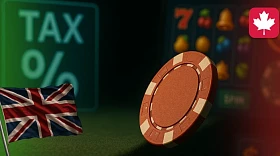

Hellworkers So much for "consumer care". As soon as they are strangled with taxes, everyone will really go to left-wing offices.








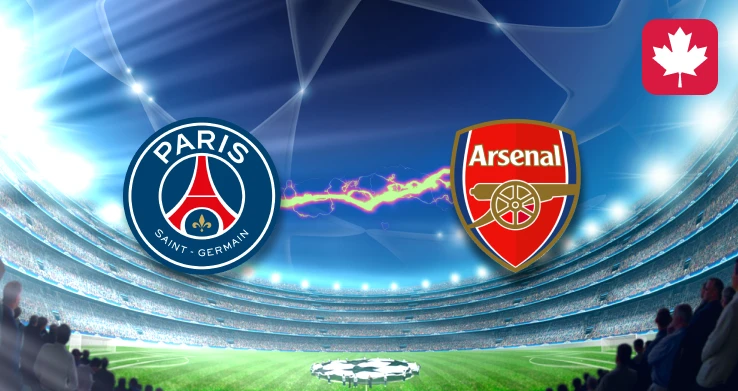
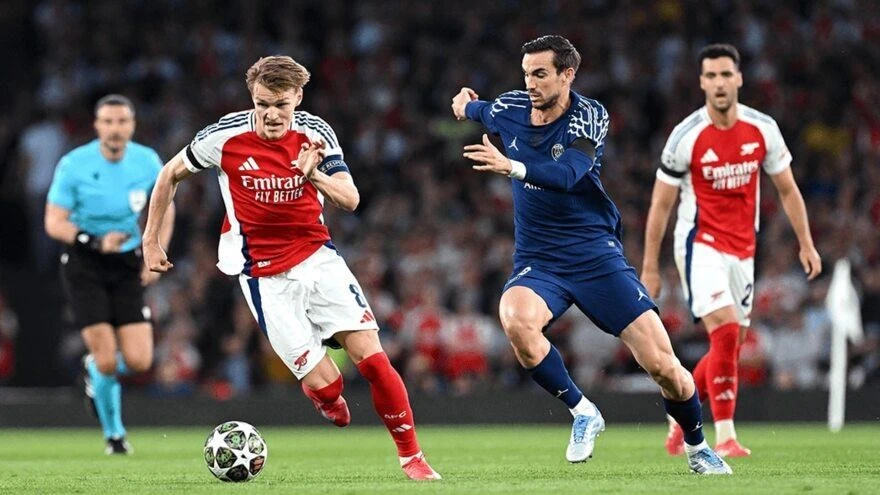
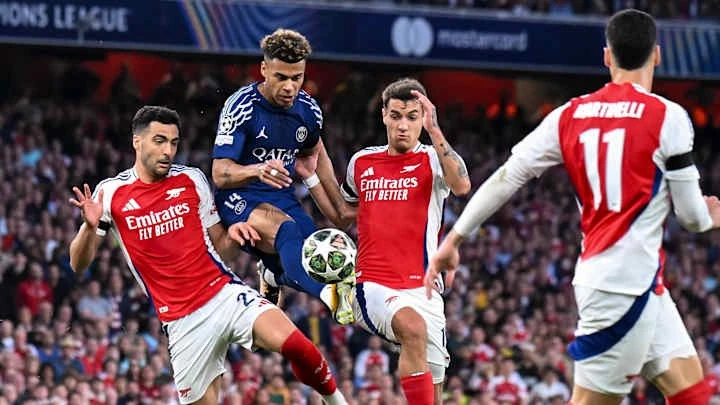
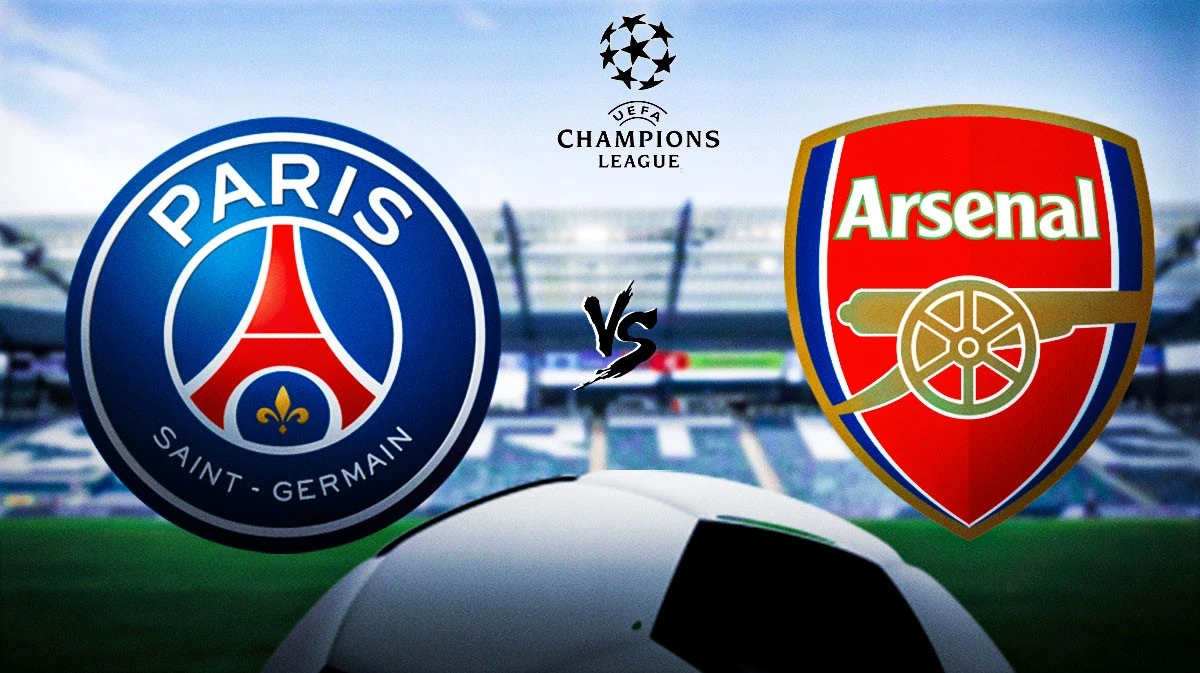







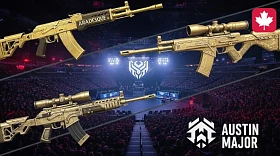







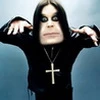

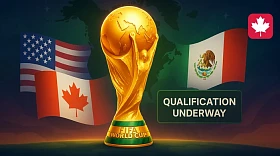


















Where's the best place to bet?
Slots are better.
Don't care.
I've been supporting Arsenal since 2006... they've broken my heart so many times. I just hope fate is kinder to us today.
If Saka goes off today, no amount of ball-passing will save PSG. It's all or nothing!